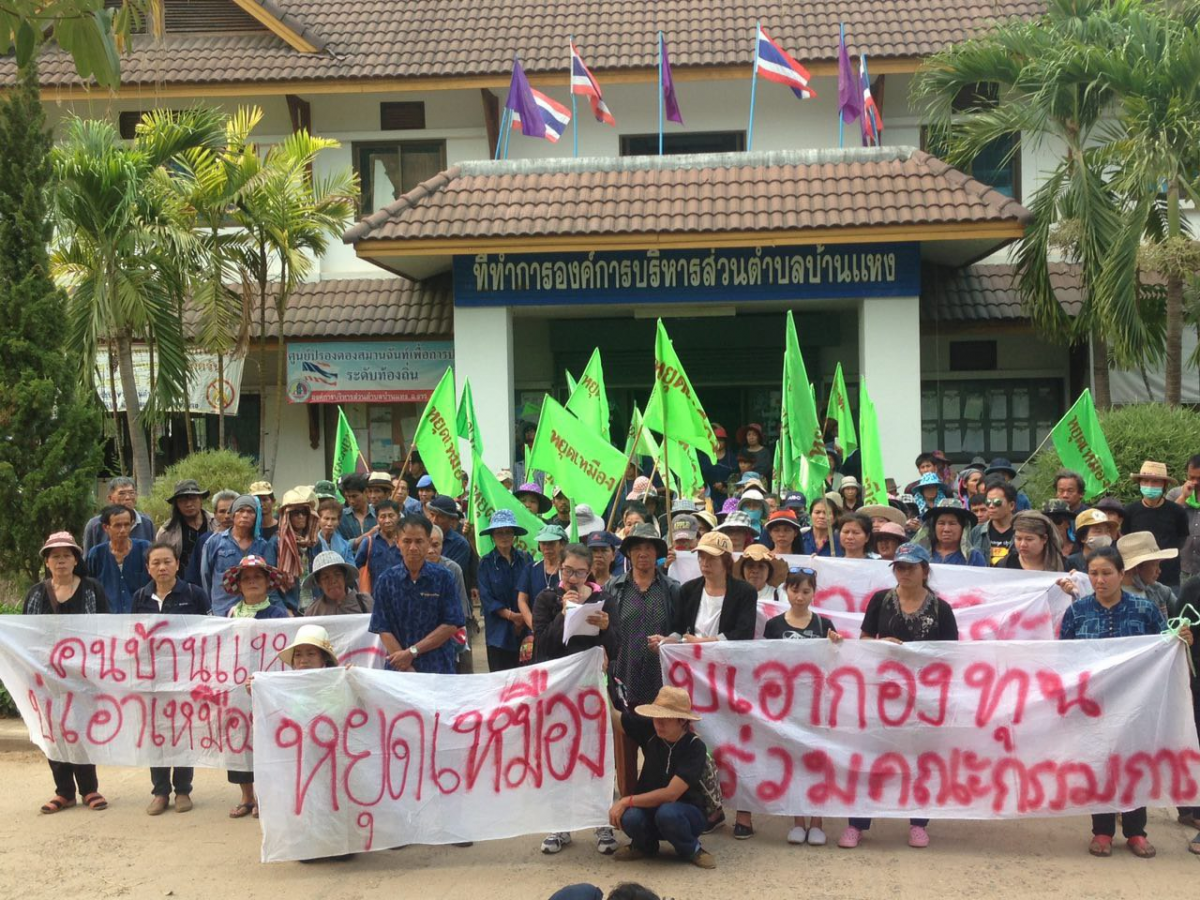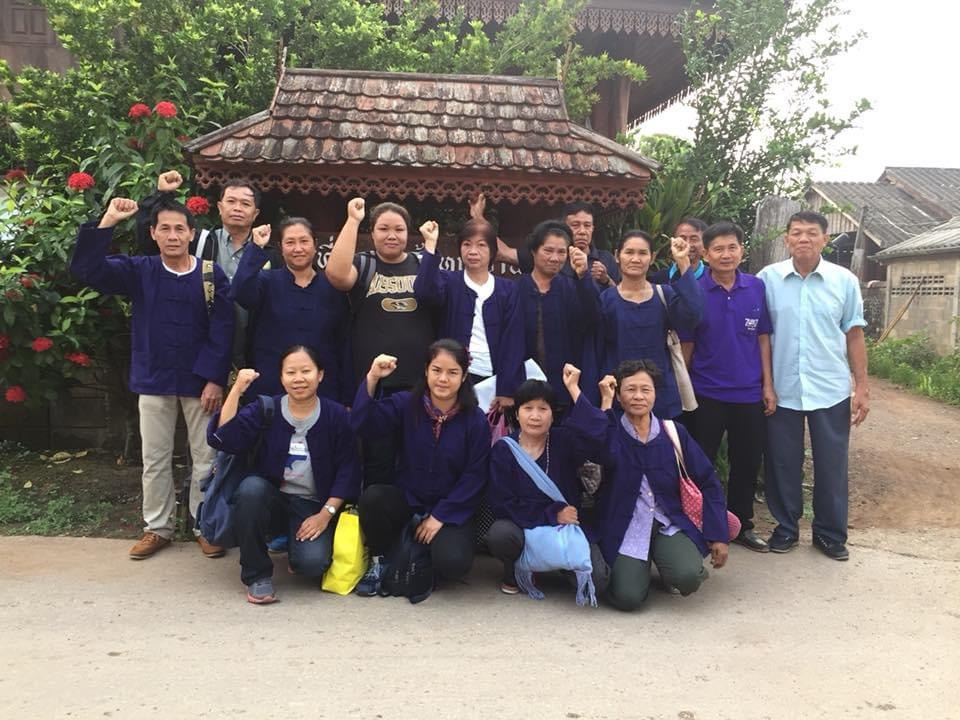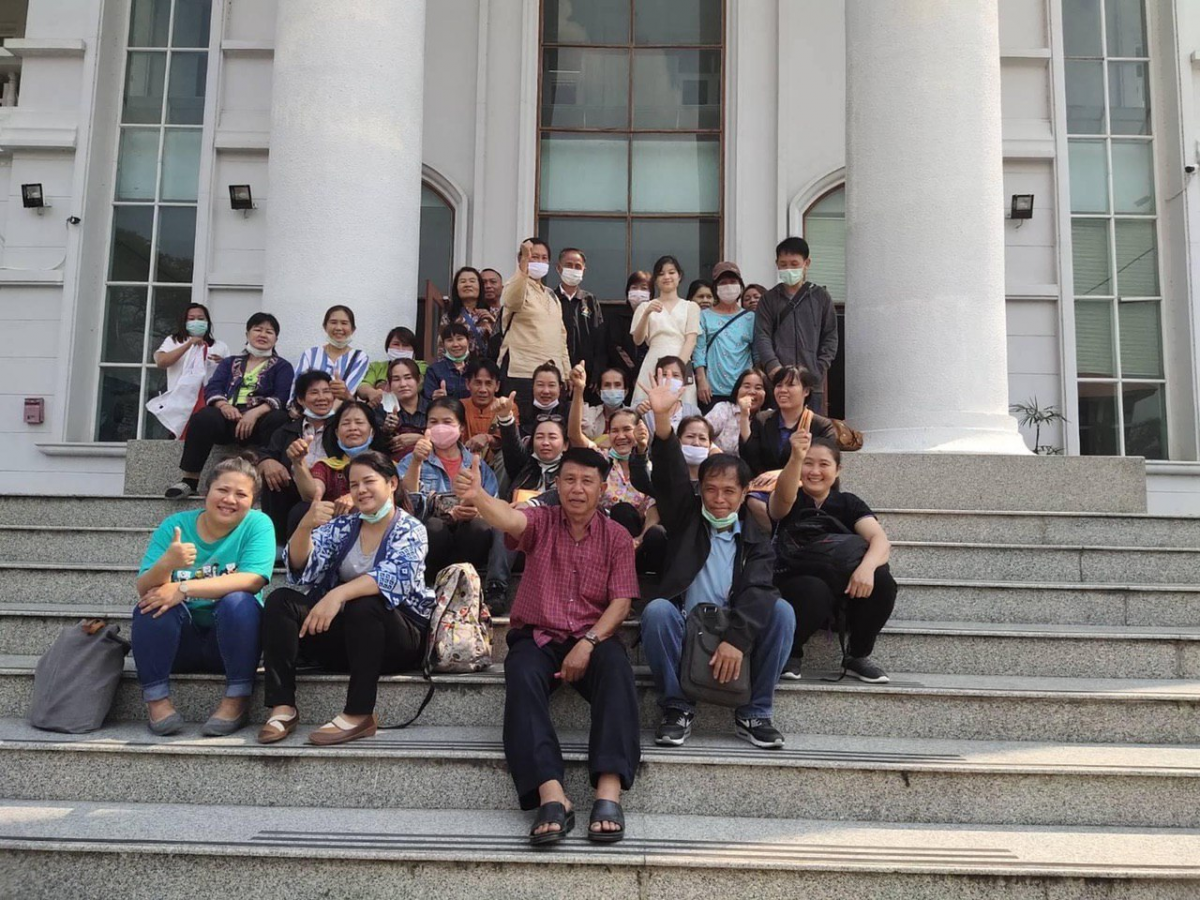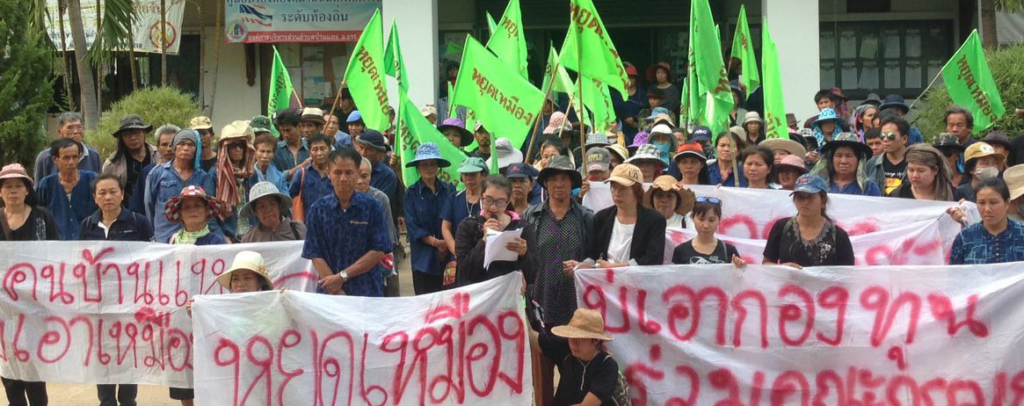Earth Day 2020: Anti-mining Women and Men Human Rights Defenders win a court case against the Thai Ministry of Industry for unlawful granting of mining concessions.
Bangkok, 22 April 2020
Community-based Women and Men Human Rights Defenders (W/HRDs) from the anti-mining community Rak Ban Haeng Group in Lampang Province, northern Thailand, won a crucial court case that could lead to a permanent cessation of lignite mining operations in their community. The case was one of three filed against the Ministry of Industry in October 2015, arguing for the immediate shutdown of mining operations being carried out without sufficient legal processes.
On 22 April 2020, the Chiang Mai Administrative Court handed down the decision in favor of the 386 villagers who filed the administrative case against the Industry Minister, the Director of the Department of Primary Industries and Mines, and six other officials. The community of W/HRDs requested the revocation of the concession permit and the complementary Environmental Impact Assessment Report over a lack of due process.
For a company to be granted a concession for mining operations, it is legally obliged to produce survey reports of the mining area with relevant representatives, ensuring the informed consent of the affected community through public hearings, and ensuring there is no conflict present. Additionally, there must be community participation in the Environmental Impact Assessment (EIA) report.
Since 2010, the community members of Ban Haeng have been vocal in their opposition to the proposed coal mining project. In the absence of due process and genuine community consultation, the people living and farming in the area have organized into the Rak Ban Heng Conservation Group. The group aims to ensure the conservation of the forests, natural resources, the environment, the community, and their traditional culture and values. The community is steadfast in opposing lignite mining because of the destructive nature of the project which would have a huge impact on the health and livelihood of the community.
Despite community resistance, a mining concession was granted to Green Yellow Co. Ltd. in August 2015 by the Ministry of Industry. On 22 October 2015, 386 villagers filed a complaint at the Chiang Mai Administrative Court, requesting the court to revoke the concession permit and issue a temporary injunction against mining operations in the village. As the exploratory concession expired in August 2016, the tensions between the mining company, the State, and the community continued to rise.
Various forms of intimidation, including close physical surveillance by unidentified men, harassment from military officers, death threats, and enforced disappearances have been targeted to W/HRDs in Rak Ban Haeng Group. The plaintiff argues that the authorities went ahead and granted the concession permits even though the mining company did not fulfill the legal requirements. Furthermore, the officials did not give prior information about the project to the community, did not arrange a public hearing, and did not allow environmental and health organizations to inform the villagers of the impacts of the mining project, as stipulated in Articles 66 and 67 of the Thai Constitution. Lastly, the company never consulted the community affected once the EIA report was completed.
Waewarin Bua-ngern, a woman human rights defender and one of the leaders of the Rak Ban Haeng Group, said that she and the villagers are happy with the court’s decision. However, she also realized that this was not the end of their struggle against mining operations in their community. She said that the company would still be able to appeal to the Supreme Administrative Court, a process which would take another 3-6 years.
“While I am happy that the court made a favorable decision, I know that it will still take a long time to get justice, as we have been fighting this for ten years. We know how hard and long it is to win one little step,” said Waewarin. “Even though this decision can end this particular project another mining company can arrive and request a mining concession. As long as we continue to live on mineral resources, the struggle will always continue.”
Kan Tamee, the lawyer from the Community Resource Center (CRC) who represents the villagers in this case, said that the verdict is a positive development:
“The cases that we have been working on all took such a long time that sometimes it discouraged the community members from continuing to fight,” she said “However, this has shown that their 10 years of struggle did not go to waste.”
Rak Ban Haeng Group demands that the state must immediately invoke the operations license of the mining company. They also call on the government to address the issue of access to land by granting land use rights to the villagers, who are mostly peasants. The Group made clear that they could use the forestland granted by the Agricultural Land Reform Office or the Committee on National Land. The group also demanded that land deeds be distributed to the villagers who had long settled there before the area was converted into a protected forest.
Protection International welcomes the judgment as a positive development for the communities struggling to defend and care for their livelihood and natural resources. The Thai state must ensure that companies, especially in extractive industries, and public officials are held accountable for their activities and impacts on the public and environment. They must also ensure that W/HRDs can defend their rights without fear of repercussions for their activities.





